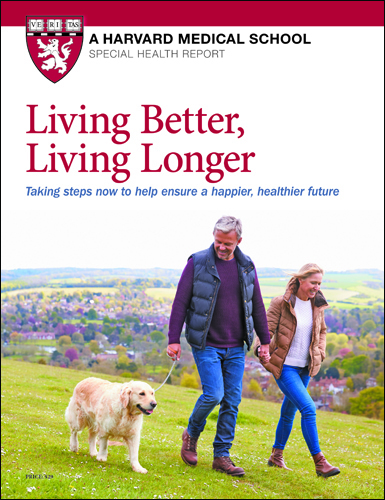You don't say? Does that tickle?
- Reviewed by Howard E. LeWine, MD, Chief Medical Editor, Harvard Health Publishing; Editorial Advisory Board Member, Harvard Health Publishing
 Ever wonder why people are ticklish? If so, you're not alone. Great minds such as Aristotle, Sigmund Freud, and Charles Darwin also have pondered the subject. Yet no one knows for sure.
Ever wonder why people are ticklish? If so, you're not alone. Great minds such as Aristotle, Sigmund Freud, and Charles Darwin also have pondered the subject. Yet no one knows for sure.
Ticklishness falls into one of two categories: gargalesis (the kind that makes you laugh and squirm) and knismesis (the disconcerting or itchy sensation like a feather brushing lightly over your skin, also known as light-touch tickling).
There are some ideas about why the laughing kind of ticklishness occurs:
It's a way humans bond. When a mom tickles her baby, the baby laughs, the mom smiles, and they share a happy moment. Similarly, kids who enjoy tickling each other may bond over the experience. (Then again, tickling can be a form of bullying.) Among adults, tickling can be a kind of sexual foreplay. (However, some people hate to be tickled and view it as painful.)
Ticklishness protects vulnerable areas. The top ticklish spots are around the armpit and the abdomen, and it's thought that our reaction to tickling here is a protective reflex. However, there are some holes in this theory, since the hands and face are more vulnerable, but they are not particularly ticklish.
The feeling that comes from light-touch tickling may be another type of protective reaction, as it makes you want to rub the area. So, if you feel a bug crawling on you, the impulse from its light-touch tickling is to brush it off and thus stop it from causing any harm.
Why can't you tickle yourself? Once again, there are no convincing data. But one idea is that laughter-associated tickling requires that you not know it's coming. Studies show that people laugh more when they're blindfolded and don't know where or when they'll be tickled.
Image: © Fernando Sileo / EyeEm|Getty Images
About the Author

Matthew Solan, Executive Editor, Harvard Men's Health Watch
About the Reviewer

Howard E. LeWine, MD, Chief Medical Editor, Harvard Health Publishing; Editorial Advisory Board Member, Harvard Health Publishing
Disclaimer:
As a service to our readers, Harvard Health Publishing provides access to our library of archived content. Please note the date of last review or update on all articles.
No content on this site, regardless of date, should ever be used as a substitute for direct medical advice from your doctor or other qualified clinician.
















